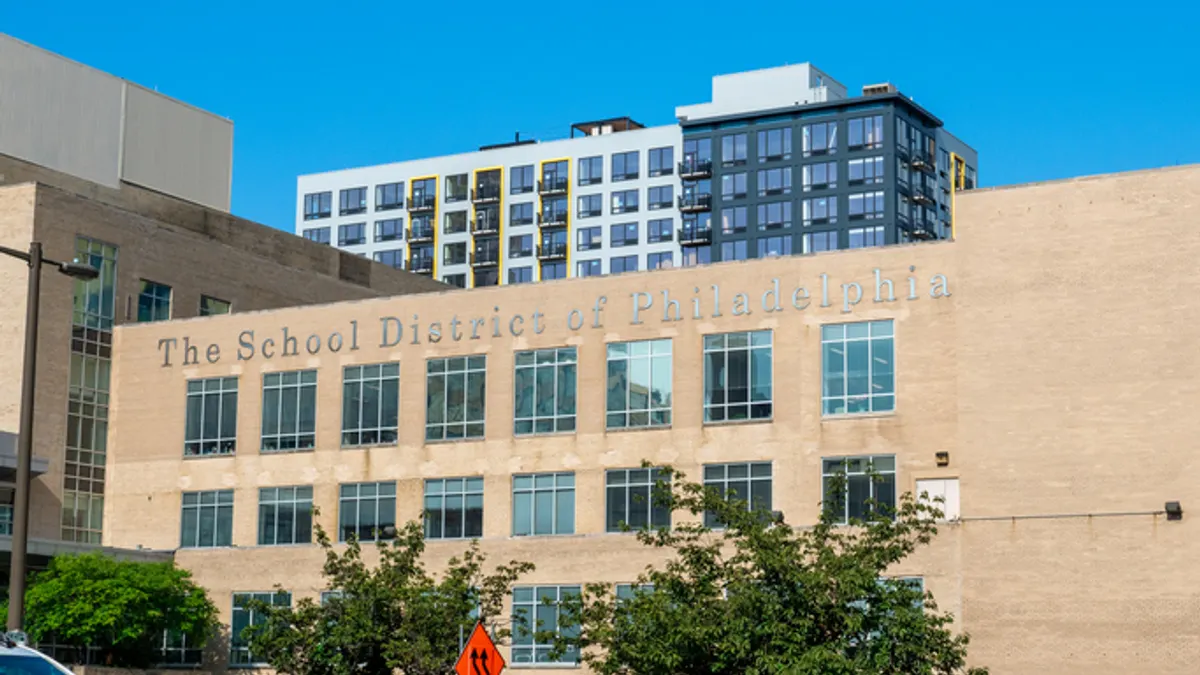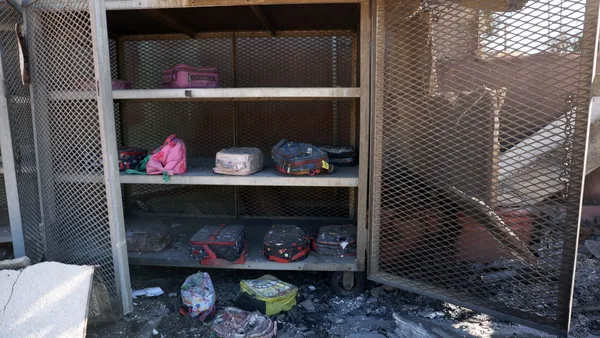Dive Brief:
- The School District of Philadelphia and the U.S. Attorney’s Office for the Eastern District of Pennsylvania entered into a deferred prosecution agreement on June 26 that lets the school district avoid criminal prosecution as long as it meets federally mandated asbestos inspection and remediation requirements, the U.S. Department of Justice office announced.
- “This deferred prosecution agreement … affords the government the highest available level of prosecutorial and judicial oversight over the School District of Philadelphia and its efforts to comply with its legal obligations to provide safe schools,” said David Metcalf, the U.S. attorney who heads up the Philadelphia DOJ office.
- This is the first time that a U.S. school district has been criminally charged with this type of environmental violation, the Justice Department said. The agreement requires court approval before it takes effect.
Dive Insight:
The school district owns over 300 buildings, most of them decades old and the majority containing asbestos. For the past several years, DOJ and the U.S. Environmental Protection Agency have been investigating the district’s handling of its asbestos risk and found it violated a federal law, the Asbestos Hazard Emergency Response Act, or AHERA, enacted in 1986 to require public schools to meet monitoring and remediation requirements to reduce exposure to damaged asbestos by students, teachers and others.
Among other things, school districts are required every three years to conduct detailed inspections of their buildings and remediate damaged asbestos and every six months to conduct less intensive visual inspections to ensure areas containing asbestos remain safe.
In the criminal charges it filed, DOJ says the school district failed to meet the three-year inspection requirement at seven of its schools and the six-month requirement at one school.
The five-year long joint investigation by DOJ and EPA uncovered dozens of other problems, including inadequate efforts to remediate exposed asbestos.
In some instances, DOJ says, “damaged asbestos was improperly addressed [by using] duct tape to cover it up.”
Longstanding challenge
The school district’s problems managing its asbestos risk go back years. Because so many of its buildings were built decades ago, when asbestos was commonly used for its fire resistance and effectiveness as a thermal insulation, the district has struggled to meet the strict monitoring requirements in AHERA, according to Victoria Flemming, the school district's executive director of environmental management and services.
“There’s no simple fix,” she said during a 2023 press briefing on the district’s asbestos actions, according to a report by Chalkbeat Philadelphia.
At the time, she said the district would need to average 50 inspections a month to comply with AHERA.
To ramp up its inspections, it entered into a $24.2 million, multi-year contract with a consulting and engineering firm, Tetra Tech, according to the Chalkbeat report.
In offering the deferred prosecution agreement, DOJ credited the district with improving its efforts.
“We appreciate the DOJ recognizing [our progress] and [are] pleased that we settled that agreement,” Philadelphia School District Superintendent Tony Watlington told NBC10 Philadelphia on June 27.
Watlington said the district is current on its federally-required inspections. Every district owned school building is now inspected twice per year, he said in a June 26 statement.
To improve the district’s AHERA program, its annual budget for environmental management rose from $10.2 million to $55.7 million between fiscal years 2021 and 2025. Additionally, the district now regularly posts all asbestos inspection reports on its website.
“We have tripled our investment in environmental management with support from the University of Pennsylvania, and we have increased transparency with school communities so they can have more confidence in the District,” said Watlington in the statement.
Under the agreement, if a court finds the district meets its inspection and remediation requirements for five years, the criminal charges will be dropped.








 Dive Awards
Dive Awards







